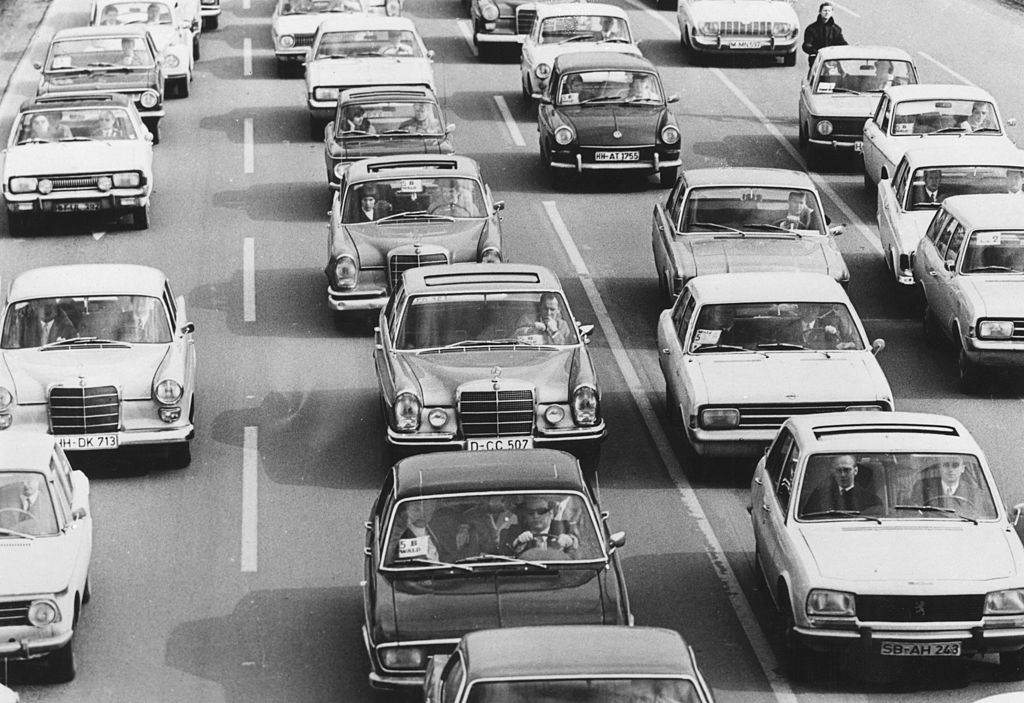Admit it, the joy of driving is a myth – in Britain at least. Drivers who talk about the thrill of getting behind the wheel should ask themselves, when was it that they last really enjoyed driving somewhere?
Because the grim truth is that unless you are on an isolated country road miles from the nearest speed camera – and certain that no one else is around – you simply can’t let rip anywhere now. The traffic never subsides enough for you to get a decent run up and, if it did, you’d be flashed by speed camera or break the average speed limit before you could even hit fourth gear (let alone hit the near-mythical realm of Fifth Gear).
Automated cars will expose British driving for the chore that it has become
The situation is only going to worsen as the population of Britain climbs remorselessly to northwards of 70 million by 2050. One thing is clear – by the time we get there, I don’t plan on trying to drive anywhere.
Thanks to these demographic pressures and the sort of surveillance that Kim Jong-un can only dream of, driving in Britain is now about as much fun as dousing yourself in hand sanitiser every time you enter a shop. You’re constantly being monitored by the state for the smallest infraction. With 7,000 speed cameras alone Britain has 900 more than the USA, and only 3,000 fewer than Russia which is of course 70 times larger than Britain.
Unsurprisingly therefore, government figures show that the average speed on rural A roads is now a ferocious 36 miles per hour. This is positively Mr Toad-like when compared to urban roads where the speeds are around 19 miles per hour. At that speed it is technically feasible for Usain Bolt to run in front of your car with a red flag like they did 100 years ago in the age of horseless carriages.
Then there are the health repercussions of driving today. If you’re a motoring idealist who drives a manual it’s time to confront the awkward truth that you’re just storing up problems for an orthopaedic surgeon to deal with in 30 years’ time. Never mind never getting out of third gear… it’s your hips and knees you’ve got to consider. If you live near a big city, you either need to buy an automatic or get Bupa.
The prospect of autonomous cars arriving on the scene in the course of the next decade is something I await with baited breath. I know, petrol heads malign it as boring and passionless, but it’s better than what the alternative has become.
Suddenly in five or ten years’ time, you’ll find yourself swearing uncontrollably because your other half has forgotten to buy the equivalent of salt granules for the autonomous function of your car. You’ll have an essential meeting in 20 minutes that you still need to do work for – ie in the car on the way – and it will come flooding back. Like life before Google Maps.
And this is because the great benefit of autonomous cars is that we will be able do so many more interesting things in them, as we pootle along or sit in a traffic jam.
As you head along the M4, Britain’s most boring road, from London to Cardiff, say, you could fill your time by reading a good book, watching two episodes of Call My Agent (or three if there’s a snarl up on the M5), or you doing be something altogether more racy within the privacy of your tinted windows as the your autonomous car whizzes you along.
Likewise, going out for dinner party will involve nil discussions about who is driving home. In the sunlit uplands of the near future no one needs to worry about drinking and driving. In fact, you can get even have a few before you go – and on the way, taking advantage of the mini-bar. Come on, doesn’t that sound good? We’ve probably got 20 years until they try and ban alcohol so the self-driving revolution can’t come soon enough.
Of course, there might be times when we miss it: the feedback in the wheel as you veer round a corner, and the flutter in your heart as the back end of the car of slides out towards the trees, followed by that rush of survival.
But they will be few and far between. Even the most nostalgic amongst us will find we’re all too ready to give up our position behind the wheel when we realise what there is to be gained. More than anything else, automated cars will expose British driving for the chore that it has become; we won’t miss it any more than we miss doing the dishes.






Comments